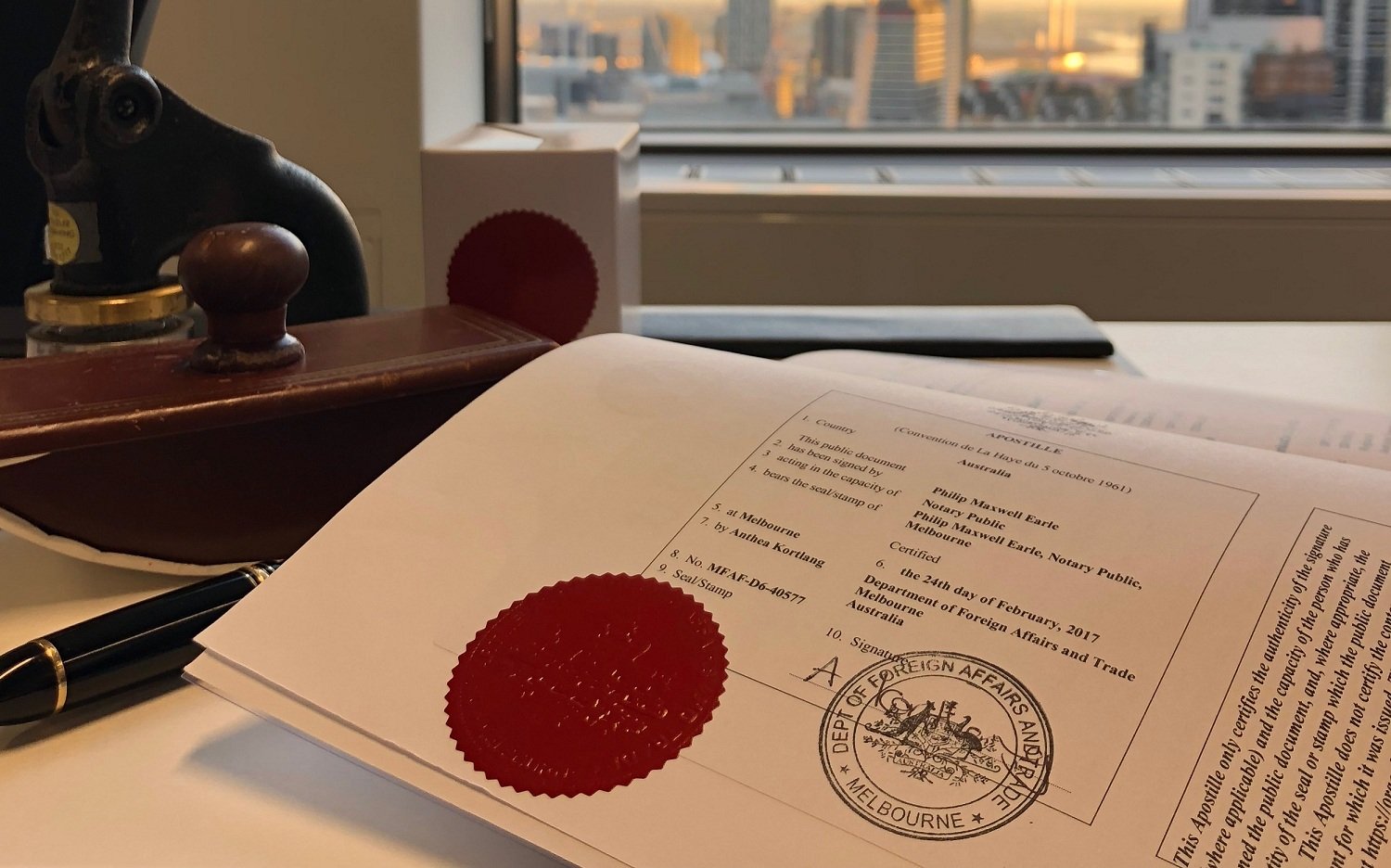Exploring the Factors Behind the Obligatory Demand of Apostille Accreditation for Legal Papers
In the realm of legal documentation, the obligatory requirement of apostille qualification has come to be a vital facet that dramatically influences the legitimacy and acknowledgment of legal papers on an international scale. Understanding the reasoning behind this need includes delving right into the detailed internet of legal intricacies, historic precedents, and global arrangements that emphasize the value of apostille certification in today's interconnected globe. By discovering the underlying reasons behind this widespread need, a clearer picture arises of why this relatively bureaucratic procedure holds such enormous importance for organizations, individuals, and federal governments alike.
Historical Advancement of Apostille Accreditation
How did the principle of apostille accreditation evolve gradually to become a vital part of international record validation? The historic evolution of apostille accreditation days back to the early 20th century. The demand for a simplified approach of verifying documents for use throughout borders emerged as worldwide profession and travel boosted. In response to this requirement, the Hague Conference on Personal International Regulation introduced the Apostille Convention in 1961. This global treaty established a structured process for licensing the authenticity of papers to be identified in participant countries.
Originally taken on by a couple of European countries, the Apostille Convention gradually gained global acceptance because of its effectiveness and efficiency in validating the authenticity of main documents. For many years, the convention's reach increased as even more countries joined, recognizing the apostille as a generally approved type of paper verification. Today, apostille qualification has actually ended up being a typical need for confirming lawful documents in worldwide deals, guaranteeing smooth communication and legal process in between countries.
Simplifying International Record Legalization
The streamlining of global document legalization treatments has actually considerably boosted efficiency in cross-border deals. Streamlining the procedure of legalizing files for worldwide usage has become critical in facilitating swift and seamless purchases in between countries. One of the essential systems that have actually contributed to this simplification is the adoption of the Apostille Convention, which offers a standardized technique for validating the credibility of documents across taking part nations.
By adhering to the Apostille demands, nations concur to identify each various other's public documents as valid without the demand for additional legalisation. This removes the typically troublesome and prolonged process of several authentications by different authorities, saving time and resources for businesses and individuals taken part in global tasks.

Ensuring Record Authenticity and Legitimacy
To make certain the authenticity and legitimacy of legal papers in international deals, rigorous verification processes are crucial. By needing apostille qualification for legal papers, authorities intend to authenticate the origin of papers and validate the signatures of individuals entailed.
In addition, validating the credibility of legal files through apostille qualification boosts trust fund and self-confidence among parties involving in worldwide deals. Ultimately, by upholding rigorous confirmation requirements, apostille qualification contributes to a more protected and clear international lawful structure.

Promoting Cross-Border Legal Acknowledgment
In the world of worldwide deals, the apostille certification not only ensures the credibility and credibility of legal documents yet additionally plays an essential function in facilitating cross-border lawful recognition (Houston Apostille). When legal documents bear an apostille important site certificate, they are conveniently approved by international authorities without the need for more confirmation. This streamlined procedure accelerates the recognition of records in various countries, advertising effectiveness and reducing governmental obstacles in lawful matters that transcend nationwide boundaries
Promoting cross-border legal acknowledgment with apostille certification promotes trust and self-confidence in the authenticity of records exchanged in between countries. This acknowledgment is particularly critical in situations such as global company purchases, adoption procedures, or legal procedures entailing celebrations from various jurisdictions. By adhering to the criteria stated by the Apostille Convention, countries agree to honor the apostille seals fastened to files from various other participant countries, therefore streamlining the process of legal acknowledgment throughout borders. Eventually, the apostille qualification works as a basic device in promoting seamless global lawful collaboration and making sure the smooth procedure of cross-border transactions.
Conformity With International Treaty Specifications
Compliance with global treaty requirements is critical for making certain the consistent application of legal regulations throughout taking part nations. The Apostille Convention, developed in 1961, lays out the demands Read Full Article for the acceptance of public records amongst member nations.
The Apostille accreditation, as mandated by the treaty, serves as a warranty of credibility for documents such as birth certifications, marriage licenses, court judgments, and notarized deeds. This standard method aids stop fraud and makes certain that lawful papers stemming from one member nation are readily approved in another. In addition, by abiding by international treaty requirements, nations show their commitment to maintaining the principles of transparency, trust, and teamwork in legal issues on a global scale.
Final Thought

In the world of legal paperwork, the mandatory requirement of apostille accreditation has actually come to be an important element that dramatically impacts the validity and recognition of lawful documents on a global range. Today, apostille certification has ended up being a common need for validating legal papers in worldwide deals, making sure smooth interaction and lawful process in between countries.
Moreover, verifying the authenticity of legal documents through apostille certification enhances count on and confidence among parties Extra resources engaging in international transactions.In the realm of international transactions, the apostille certification not only makes sure the authenticity and validity of lawful records however likewise plays a pivotal role in promoting cross-border lawful recognition. By sticking to the requirements set forth by the Apostille Convention, countries concur to honor the apostille seals fastened to papers from various other member nations, therefore simplifying the procedure of legal acknowledgment throughout borders.